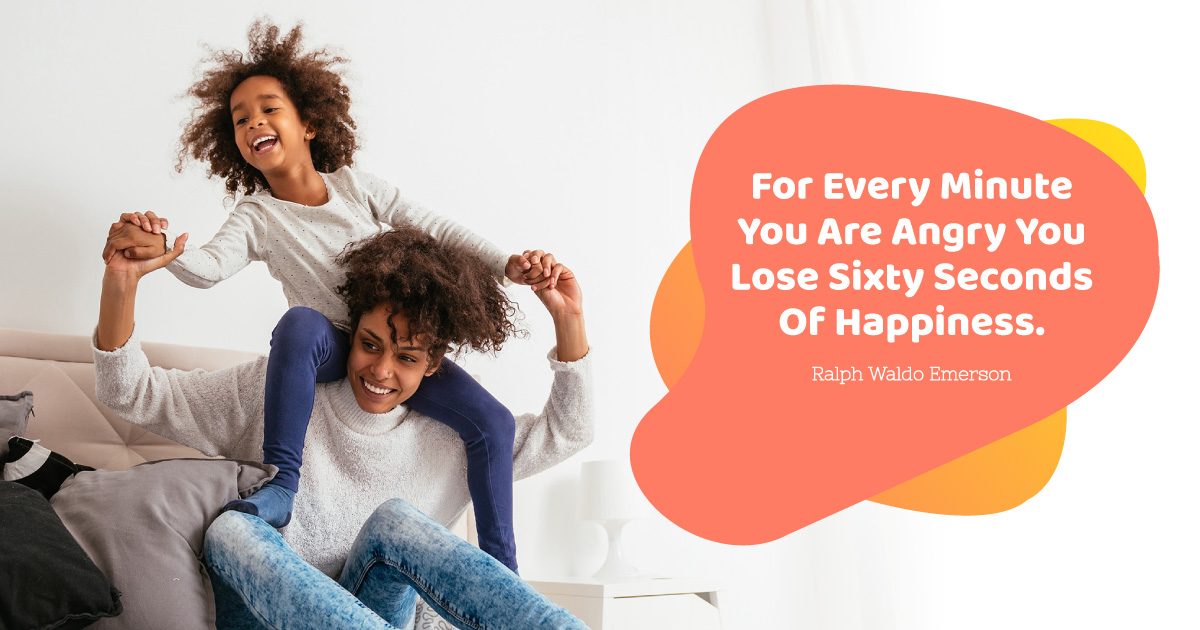On a scale from one to ten, how would you rate your happiness? Does that number change daily? Could you use a boost?
I know what mine is. I would rate my happiness a 7 out of 10. And this doesn’t always come easy for me. Sometimes I choose negative thoughts over happiness when I didn’t have to choose that.
Being happy doesn’t mean you have an “I don’t care attitude.” It does take some work to choose happiness when our mind is geared for flight or fight response. This makes it much easier to choose negative thinking over happiness. So, yes, my score of a 7 does take work. But I’d rather work to be happy than be grumpy.
According to science, your happiness level is a result of a complex interaction of genes, behaviors, and life circumstances. This means a big portion of how you feel is within your control. The way you spend your time and the thoughts you allow to linger can impact your mood, self-esteem, and long-term happiness.
It’s normal to experience the ups and downs, but, if you’re continually seeking out happiness, or waiting for the perfect moment to be happy, you’re never going to get there.
There are a number of factors that contribute to happiness and techniques for achieving genuine happiness every day.
Choose Happiness By Facing Your Fear
Well, that sounds backward, right?
However, fear can undoubtedly get in the way of happiness. Fear of the unknown, of failure, or what people think about us are common barriers to happiness. In fact, fear can be downright crippling!
Fear of change, in particular, can cause people to stay in a soul-sucking career or stick with an unhappy relationship. The unknown is scary, but what if happiness is on the other side of your fear?
Fear got the best of me last year and it took away my happiness. I wanted to resign from teaching however, I was so scared to do so. I didn’t know what my future held. I felt like I was in limbo. I had something else lined up but what if it didn’t work out. I was stuck in what if and then what thinking.
This kind of thinking zapped my happiness right out.
The song Way Less Sad comes to mind by AJR. The lyrics to this song really resonated with me especially the verse where he sings, “Don’t you love it? Don’t you love it” No, I ain’t happy yet. But I’m way less sad.”
But now that I have faced the fear of the unknown and left a job that I deeply cared about but was not happy doing, I feel so much better. It’s not crippling anymore. Happiness was on the other side for me. And I never would have known that if I didn’t face my fears.
You can choose to face your fears and see if happiness is on the other side.
Have Some Self-Compassion
Having healthy and positive self-esteem is crucial to many aspects of life, including happiness. Self-esteem isn’t constant. It comes and goes like the ebb and flow of the tide.
It’s normal to internalize negative feelings, but it’s important to catch them before they lead you down the path of feeling unworthy. The antidote to poor self-esteem? Self-compassion.
According to Dr. Kristin Neff, there are three elements to self-compassion. 1. Self-kindness vs. Self-judgment. 2. Common humanity vs. Isolation. 3. Mindfulness vs. Over-identification.
Learn more here: https://self-compassion.org/the-three-elements-of-self-compassion-2/
I have a hard time with this one… A LOT. But research on this topic is so important to understand what it is and how to feel it.
Many people can make you feel worthless and low on self-esteem. Your family, your friends, your co-workers, your boss, your significant other. Some may not realize they are doing it and some just don’t care.
You can choose self-compassion to increase your self-esteem ultimately leading to an increase in happiness.
Steer Away From External Rewards
We all love external rewards, however, when our happiness is dependent upon them, we’re constantly chasing the next one. Happiness is an inside job. The best things in life are created and cultivated — good, solid relationships, positive experiences, and loving memories.
I’m not saying external rewards are bad. I’m saying don’t seek them out. Don’t do an act of kindness in search of an external reward or compliment. Don’t do something just to feel validated by others. Do it to be validated by YOU. Do it internally because it makes YOU happy, not others.
When we do something for an external reward it comes with high expectations. We expect that person to react how we want them to react. But more often than not, their reaction isn’t the same reaction we want which leaves us feeling disappointed which decreases self-esteem, and so on. It becomes a chain reaction.
You can choose to do things for external rewards or because it genuinely makes YOU happy.
Final Thoughts
According to science, 40% of our happiness is within our control. This means the way you spend your time, and the thoughts you allow to linger can really impact your mood and your long-term happiness.
Choose to be happiness.


